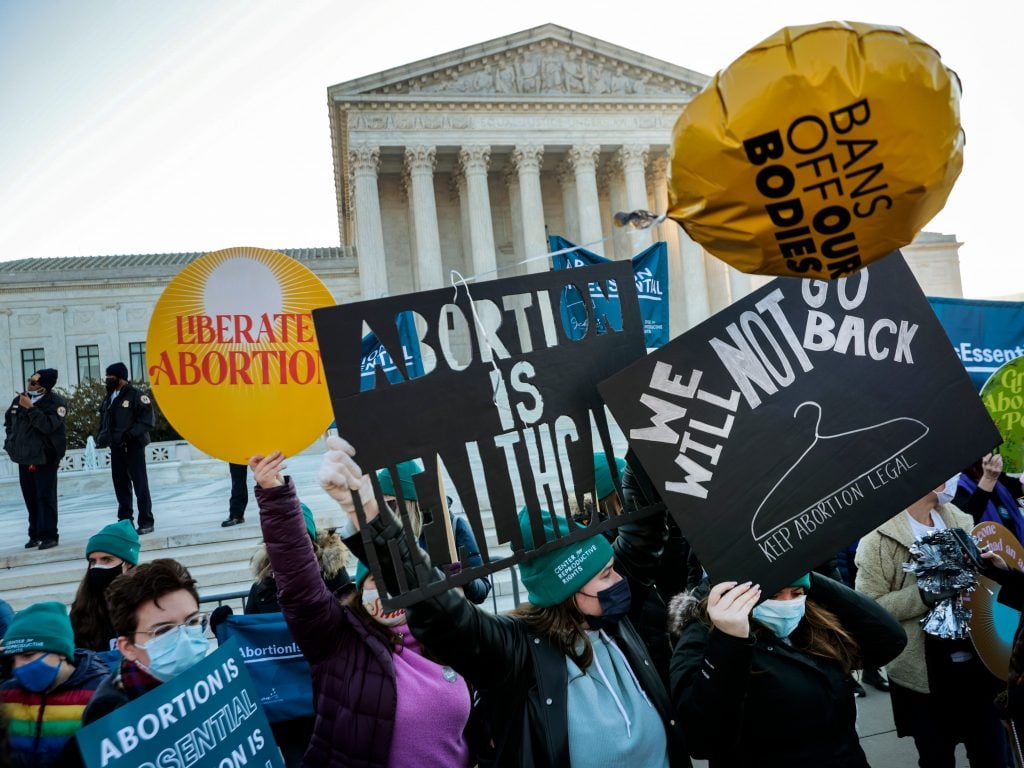- The Supreme Court appears poised to overturn Roe v. Wade and reduce abortion access nationwide.
- The erosion of reproductive rights has only happened in a handful of countries in the 21st century.
- Experts warn a rollback in abortion access is indicative of backsliding democracy and creeping authoritarianism.
As the Supreme Court appears poised to overturn precedent in Roe v. Wade and Planned Parenthood v. Casey, experts warn the rollback in abortion access is indicative of backsliding democracies.
"There is a trend to watch for in countries that have not necessarily successfully rolled it back, but are introducing legislation to roll it back," Rebecca Turkington, a University of Cambridge scholar, told The New York Times last year regarding abortion access. "[I]n that this is part of a broader crackdown on women's rights. And that goes hand in hand with creeping authoritarianism."
The US Supreme Court indicated in a draft opinion – according to reporting by Politico – that it may be preparing to similarly overturn abortion rights.
"We hold that Roe and Casey must be overruled," Justice Alito wrote in the document, labeled as the "Opinion of the Court," Politico reported. "It is time to heed the Constitution and return the issue of abortion to the people's elected representatives."
Few countries have eroded existing abortion access laws in the 21st century. Among them: Poland, Nicaragua, and the US. The changes in established law came at times of political turmoil, like that currently facing the United States.
In Nicaragua, President Daniel Ortega passed a total abortion ban in 2006 as part of an increasingly authoritarian platform. Poland's 2020 near-total abortion ban came at a moment after one of the country's top justices said the country was "moving fast" toward an authoritarian regime.
Poland's law is now one of the most restrictive bans on abortion in Europe and nine organizations have filed interventions with organizations like Amnesty International on behalf of women in the country.
"We don't necessarily always include reproductive freedom in that package of democracy," Anu Kumar, the head of Ipas, a global nonprofit for reproductive rights, told Foreign Policy. "But we should, because this is a place where authoritarian regimes often go, if not first, then pretty quickly afterward."
Dit artikel is oorspronkelijk verschenen op z24.nl
